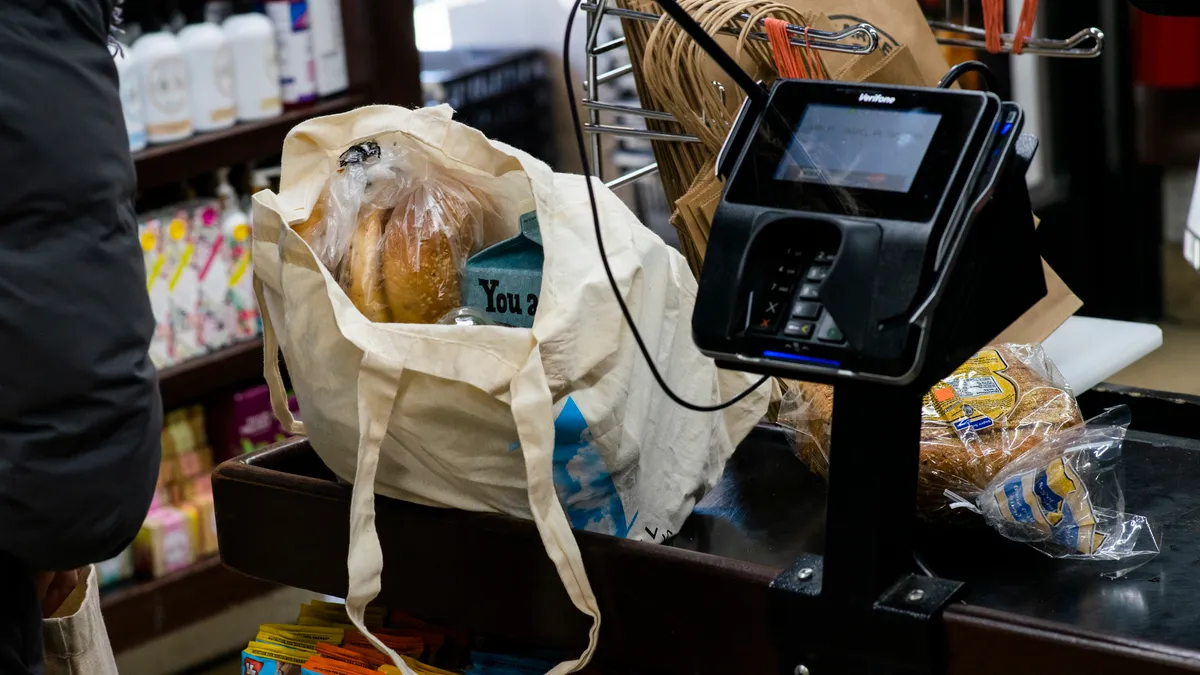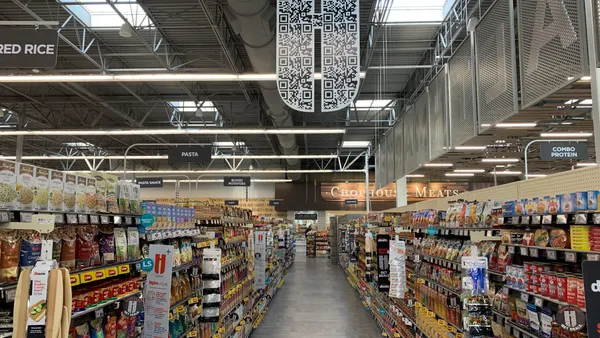The coronavirus pandemic has posed some setbacks to the grocery industry's sustainability efforts, but those temporary delays likely won't impact environmental initiatives long-term.
“We've seen some action take a downtick during the pandemic” like grocers pausing efforts to reduce plastic packaging and embrace communal food due to health concerns, said Tory Gundelach, senior vice president at Kantar Consulting. “I think that has heightened the awareness that this is an issue, and a lot of shoppers at home are being able to see in one spot all of the waste that they generate over the course of the week.”
Major public retailers like Kroger, Walmart, Target and Ahold Delhaize have turned to environmental, social and governance (ESG) reporting to share data with investors on the progress of goals. Examples of some of the metrics in the reports include total yearly amounts of carbon emissions, the annual rate of landfall diversion, the amount of waste generated and how much plastic resin was removed from packaging.
“We know that shoppers are moving to a place where they're putting values more at the forefront of their purchase decisions ... ESG initiatives, of course, fit right into that," Gundelach said. "As an investor, you want to ensure that a retailer is moving in the right direction that aligns with shopper sentiment."
Private companies that serve an eco-conscious consumer base and have long focused on promoting one-off initiatives, meanwhile, are also adopting the reporting practice. E-grocer Imperfect Foods, a private company with roughly 1,500 employees, extensively outlined its sustainability goals along with its targets for company culture, customer service and community efforts in its Impact Report released in March.
Julia Wilson, managing director of strategy at KPMG, said companies are facing more pressure from suppliers to share sustainability data ahead of vendor agreements, along with growing interest from employees, consumers and investors in holding companies accountable. Meanwhile, companies are starting to get clearer guidance on which and how much data to share as the political climate places more emphasis on sustainability, Wilson said.
"The Biden agenda is heavily focused on ESG as a pillar, and so people are rapidly focusing on that due to political waves and tides ... Employees are demanding it. The government is beginning to require it," Wilson said.
Here are a few notable examples of how food retailers are reporting their sustainability efforts:












